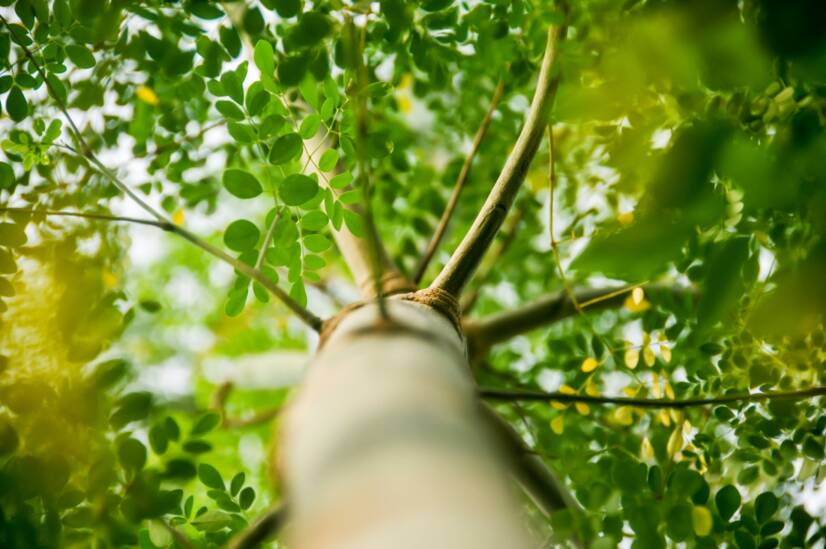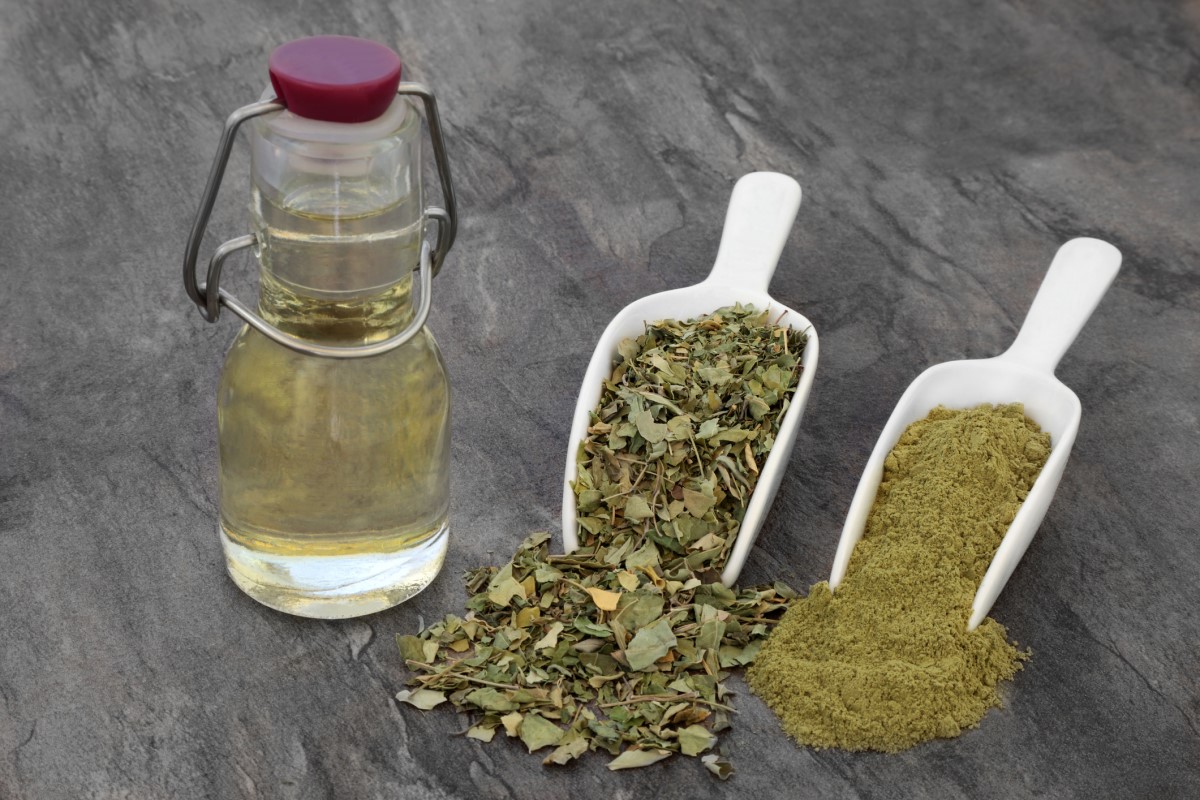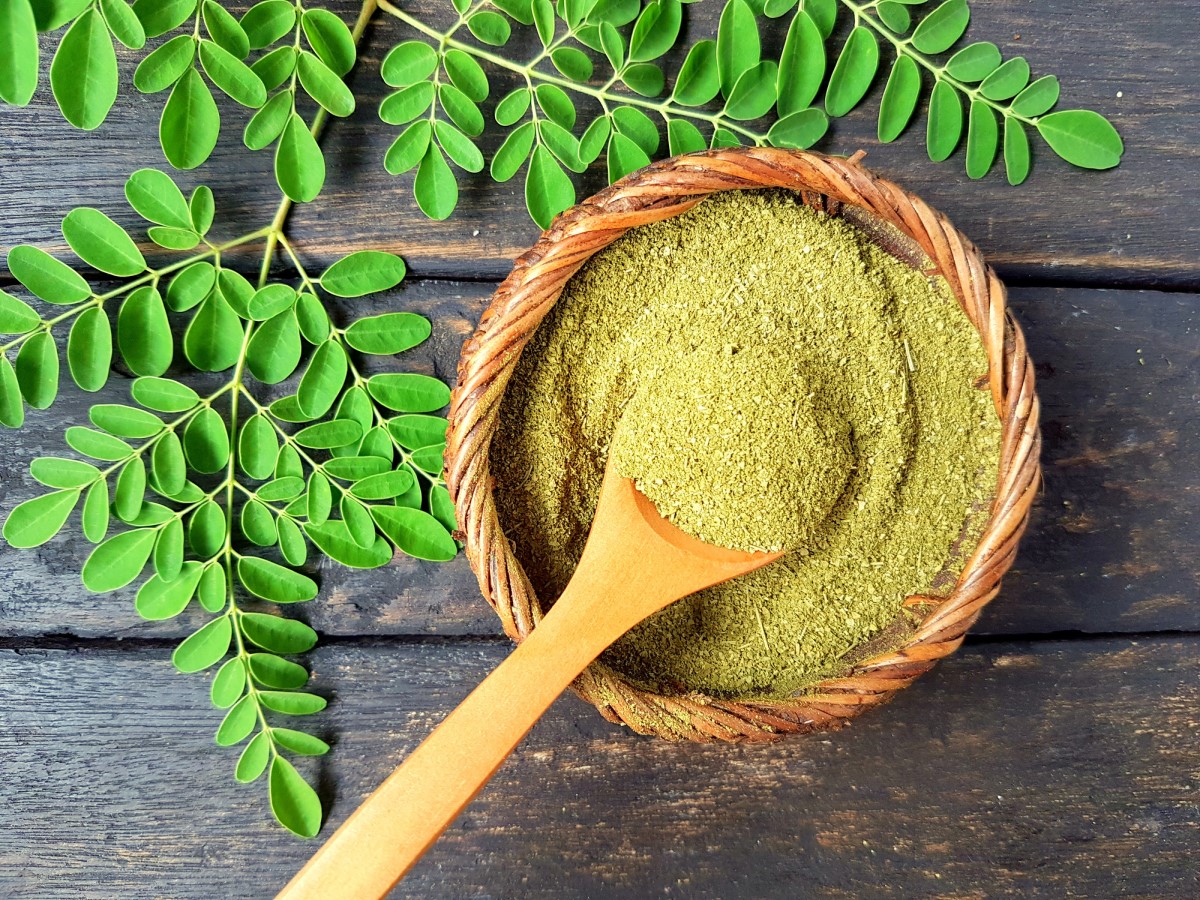- sciencedirect.com - Moringa oleifera: An overview of its nutritional importance and its medicinal uses
- ncbi.nlm.nih.gov - An overview of the properties, nutritional and pharmaceutical applications of Moringa oleifera: an integrative approach to conventional and traditional Asian medicine.
- ncbi.nlm.nih.gov - Moringa oleifera as an anticancer agent against breast and colorectal cancer cell lines
Moringa oleifera: Do you know this edible tree? What are the effects of moringa?

Moringa is native to India. It grows in tropical and subtropical regions of the world. In many parts of the world it is known as the miracle tree.
Characteristics
Moringa grows in tropical and subtropical regions of the world at temperatures of 25-35 °C. It requires sandy soil with a slightly acidic pH.
Moringa is a tree with oval leaves and pale yellow flowers. The fruits are similar to pea pods but larger.
Almost all parts of the moringa have their uses.
The roots are used in folk medicine for digestive problems and as a painkiller.
In Africa, the leaves are an important food.
The ripe seeds contain a large amount of oil and are therefore used in cosmetics.
In folk medicine, moringa roots are used for indigestion and also as a painkiller.
Content of substances in 100 grams of plant material - table
| Content of substances in mg | Fresh leaves | Dried leaves | Powder | Seeds |
| Vitamin B1 | 0,06 | 2,02 | 2,64 | 0,05 |
| Vitamin B2 | 0,05 | 21,3 | 20,5 | 0,06 |
| Vitamin B3 | 0,8 | 7,6 | 8,2 | 0,2 |
| Vitamin C | 220 | 15,8 | 17,3 | 4,5 ± 0,17 |
| Vitamin E | 448 | 10,8 | 113 | 751,67 ± 4,41 |
| Calcium | 440 | 2185 | 2003 | 45 |
| Magnesium | 42 | 448 | 368 | 635 ± 8,66 |
| Phosphorus | 70 | 252 | 204 | 75 |
| Potassium | 259 | 1236 | 1324 | - |
| Copper | 0,07 | 0,49 | 0,57 | 5,20 ± 0,15 |
| Iron | 0,85 | 25,6 | 28,2 | - |
| Sulphur | - | - | 870 | 0,05 |
Internal use
Studies report that moringa extract has high antioxidant efficacy (77% inhibition of free radical formation). This is due to the high content of flavonoids and phenolic compounds in the plant extracts.

What are the known ways of consuming moringa?
- Dried leaves in the form of tea
- fresh leaves as part of salads
- powder from young leaves
- in the form of cooking oil
Effects of each part in the table
| PART OF THE TREE | EFFECTS |
| Root |
|
| Leaves |
|
| Seeds |
|
| Fruits |
|
| Flowers |
|
The results of studies point to the fact that moringa can help in the treatment of various ailments.
However, it cannot be considered as a cure for diseases. However, in combination with medicines, it helps to alleviate the symptoms of diseases.
1. Rheumatoid arthritis
Moringa leaf extract relieves swelling, redness and pain.
2. Diabetes
Moringa leaves contain components that lower blood sugar levels. Also, the contents of moringa help the human body process sugar and release insulin.
3. Fatigue
Moringa contains vitamin A and iron. These contribute to the production of red blood cells and hemoglobin and to the proper circulation of oxygen in the human body. That is also why it is considered a life-booster.
4. Cancer
Due to its beneficial properties, moringa can be used in the treatment of cancer. According to some studies, moringa inhibits the growth of cancer cells.
It has been shown that it can help in the treatment of breast cancer and colon cancer.
5. Overall strengthening and regeneration of the body
Moringa has been shown to be good for strengthening and regenerating the body. It contains many vitamins and minerals that contribute to the so-called repair of damaged cells.
6. Scientists are investigating the effects of moringa in the treatment of Alzheimer's disease.
The following table lists the different combinations and their mutual effects, as well as dosage forms
| Combinations of plants | Effects | Medicinal forms |
| Lepidium meyenii (Peruvian cress, Peruvian ginseng, maca), Moringa (oleifera), Tribulus terrestris (ground anemone) |
| Capsules |
| Moringa oleifera |
| Powder |
| Moringa oleifera, vitamin D3, maca root extract (Lepidium meyenii) |
| Capsules |
| Moringa oleifera, L-carnitine, vitamin D3 |
| Capsules |
| Moringa oleifera, vitamin D3, green coffee extract |
| Capsules |
What is the optimal intake of moringa for humans?
The optimal intake of moringa is considered to be 29 mg per kg of weight.
Contraindications
The root, bark and flower of moringa are contraindicated in pregnancy.
The content of the mentioned parts of moringa can induce miscarriage.
Drug interactions
Moringa may reduce the effects of some drugs.
It may increase the risk of side effects from certain medications. Consult your doctor or pharmacist before taking moringa products.
Side effects of moringa:
- Allergic reactions
- diarrhea
- nausea and vomiting
- hypoglycaemia
Moringa tea
The tea is prepared as a watery decoction of dried moringa leaves.
The richest in content are those leaves that come from organically grown moringa trees.
Another criterion is the length and temperature of drying. Slow gentle drying up to 42 °C is ideal. Rapid drying at high temperatures can lead to degradation of some nutrients.
Dried leaves should not be covered with boiling water.
The water temperature when watering the leaves should not exceed 95 °C.
Dried leaves can also be combined with other herbs. The combination of moringa with ginger is ideal as it increases the antioxidant and anti-inflammatory effect on the body.
The tea can be drunk up to 3 times a day during the day, always 150-200 ml of infusion prepared by mixing with water at a temperature of about 95 °C and 4-10 g of the dried part of the plant.

External use
It works on the skin.
The effects of moringa on the skin include:
- cleanses and protects against external influences (smoking)
- moisturising
- nourishing
- smoothing
- regenerating
- removes impurities from make-up
Moringa also has positive effects on the hair. It strengthens the hair and reduces hair loss.
The powder from the leaves is used to clean the hands. It is recommended to spread 4 grams of dry or moistened powder on the hands.
Harvesting and storage
Planting and growing...
The moringa seeds should be soaked in lukewarm water for 48 hours before planting. Afterwards, the seeds should be pressed into a moist substrate (without nutrients) and covered with 1 cm of substrate. Stretch foil over the top and make holes.
Place the seed pot in a bright place at a temperature of 18 to 24 °C.
Uncover the foil every other day.
Keep the substrate moist but not waterlogged. The moringa will germinate in about 2 to 3 weeks.
The plant is not hardy. It cannot tolerate temperatures below 8 °C. It stops growing at 15 °C. It is therefore grown as a houseplant in milder conditions.
In mild conditions it is only grown as a houseplant.
Zdroje
- sciencedirect.com - Moringa oleifera: A review on nutritive importance and its medicinal application
- ncbi.nlm.nih.gov - A review of properties, nutritional and pharmaceutical applications of Moringa oleifera: integrative approach on conventional and traditional Asian medicine
- ncbi.nlm.nih.gov - Moringa oleifera as an Anti-Cancer Agent against Breast and Colorectal Cancer Cell Lines
Interesting resources










